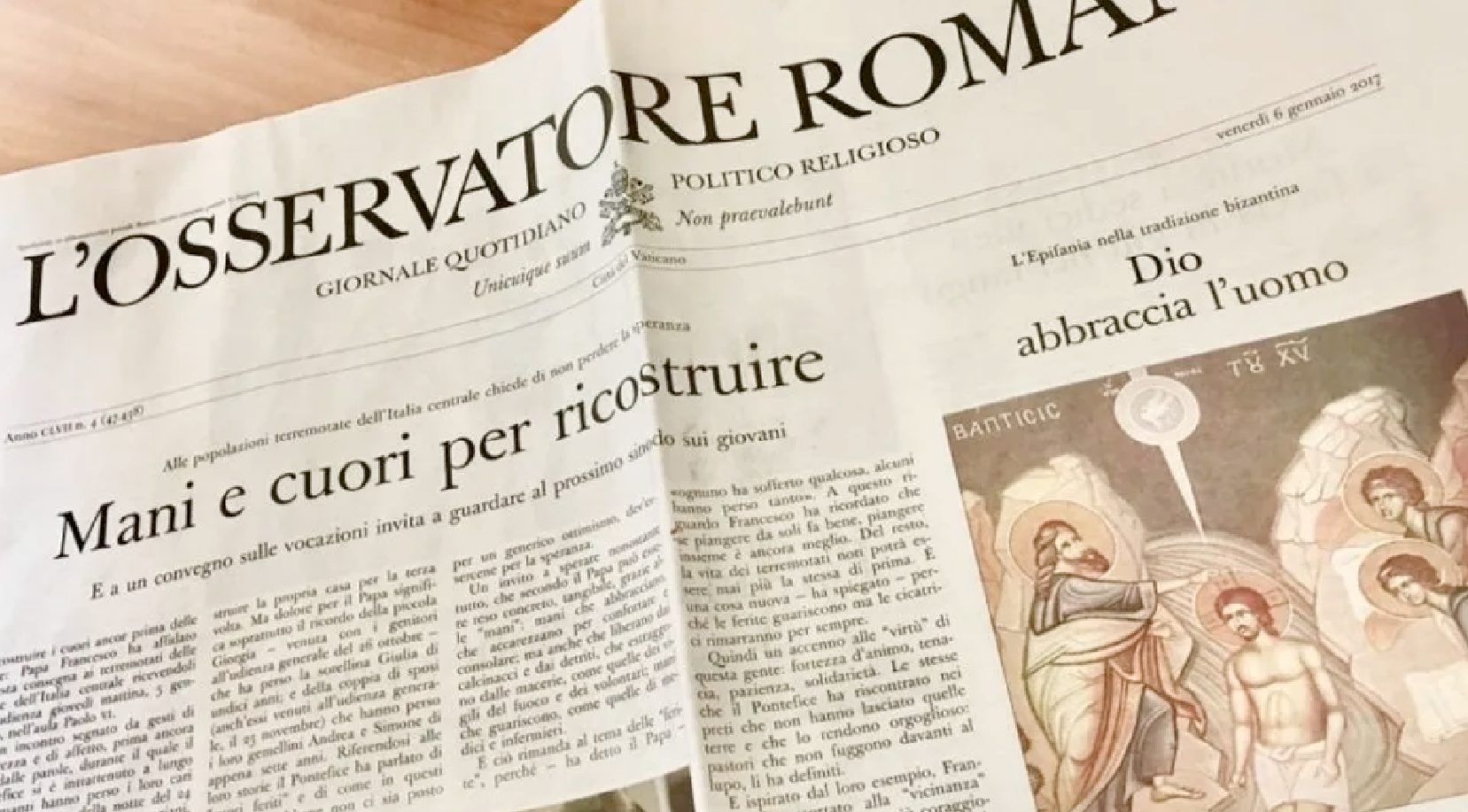(ZENIT News / Rome, 08.19.2025).- A diplomatic storm has erupted in Rome in the middle of August, a period when Vatican affairs usually retreat into silence. At the heart of the dispute is an extraordinary charge made—indirectly but unmistakably—by Israel’s ambassador to the Holy See: that the Vatican’s daily newspaper, L’Osservatore Romano, is guilty of antisemitism.
The incident stems from a column published on August 7 by Jesuit theologian David Neuhaus, a German-Israeli scholar born in South Africa to Jewish parents and a former vicar for Hebrew-speaking Catholics in Jerusalem. His essay, titled “Reading the Bible after the destruction of Gaza,” reflected on the moral dangers of weaponizing Scripture in the midst of war. Written in sober and contemplative tones, it argued that the Word of God must never be used to justify violence or territorial conquest.
While many readers praised the text as a thoughtful meditation on faith amid tragedy, it triggered a far sharper reaction from Ambassador Yaron Sideman. On August 14, the Israeli Embassy to the Holy See posted on X an article by Jules Gomes, published in the Middle East Forum Observer, which accused Neuhaus of historical distortion and directly labeled L’Osservatore Romano as “known for antisemitism.” By amplifying and endorsing that assessment, Sideman effectively allowed the charge to stand as his own.
Such language is explosive in the delicate arena of Vatican-Israeli relations. L’Osservatore Romano is not just any Catholic outlet; it is the papal newspaper, overseen by the Secretariat of State and formally part of the Holy See’s communications apparatus. To brand it antisemitic is, in diplomatic terms, to cast doubt on the very credibility of the Vatican as a moral voice.
The move did not go unanswered in academic and ecclesial circles. Historian Matteo Luigi Napolitano, an expert on international relations and a longtime contributor to Vatican studies, responded sharply on social media. Addressing the ambassador directly, he warned that such a statement could render Sideman persona non grata under the Vienna Convention on Diplomatic Relations. “There are things an ambassador cannot say without consequences,” Napolitano argued, stressing that accusing the Pope’s newspaper of antisemitism crossed a line of diplomatic propriety.
For now, the Vatican has remained silent. The summer lull may partly explain the lack of official reaction. The post remains publicly visible on the embassy’s profile, suggesting no second thoughts in Jerusalem about the language used.
The controversy comes against the backdrop of strained ties between the Holy See and Israel, heightened by the ongoing war in Gaza. Pope has consistently condemned the humanitarian toll of the conflict while avoiding political partisanship, a balancing act that often leaves both Israelis and Palestinians dissatisfied. Yet rarely has criticism of the Vatican crossed into accusations of antisemitism, a charge that carries heavy historical baggage in Catholic-Jewish relations, especially in the decades since the Second Vatican Council’s landmark declaration «Nostra Aetate».
Whether this clash becomes a passing summer squall or the seed of a larger rupture remains uncertain. But the episode underscores how fragile the equilibrium remains between Israel and the Vatican, and how quickly words—especially when amplified on social media—can become diplomatic weapons.
Thank you for reading our content. If you would like to receive ZENIT’s daily e-mail news, you can subscribe for free through this link.

